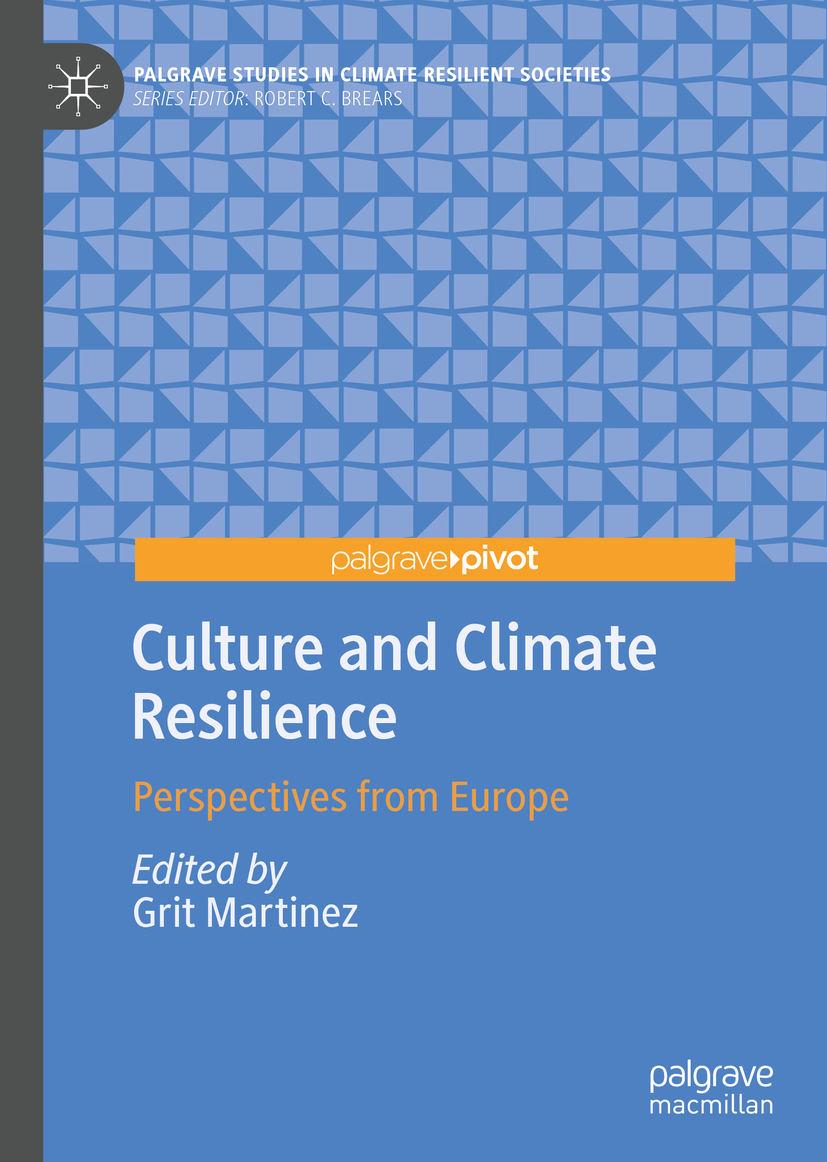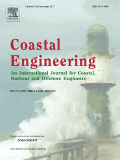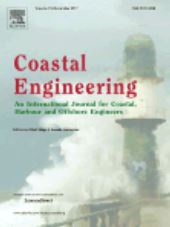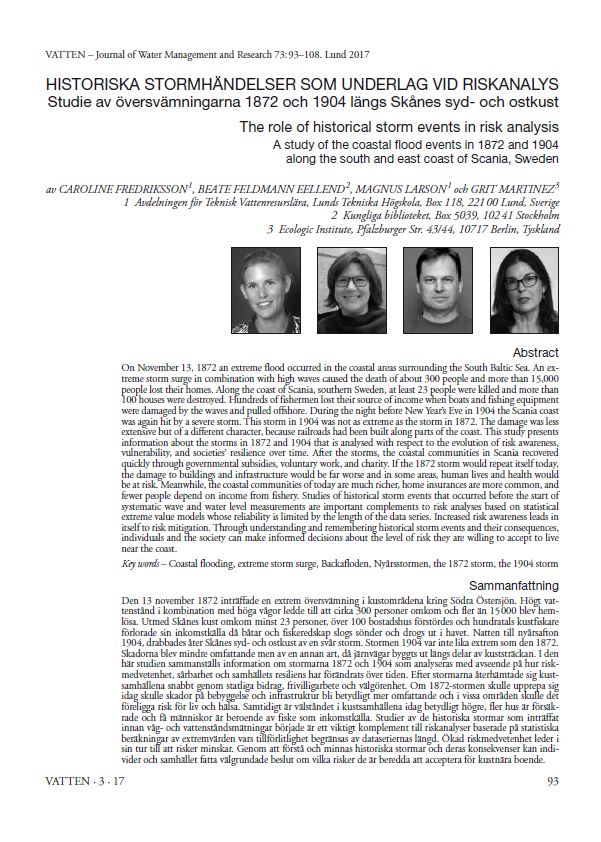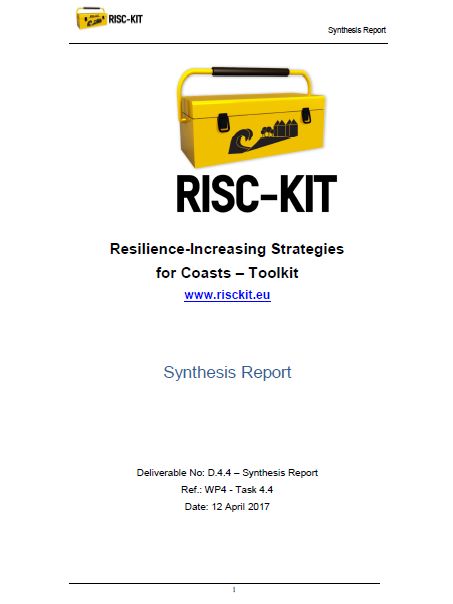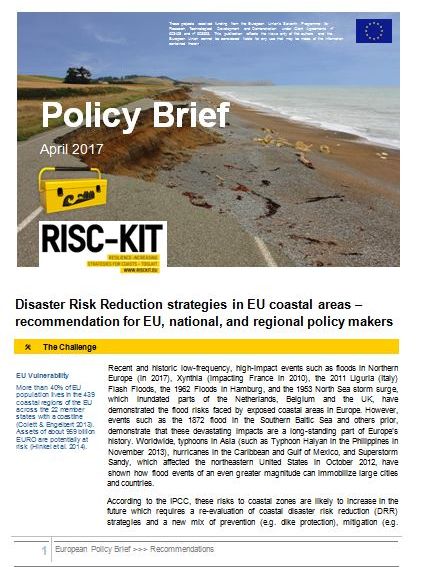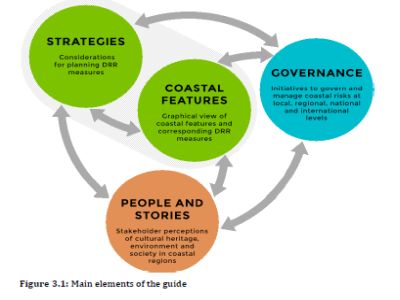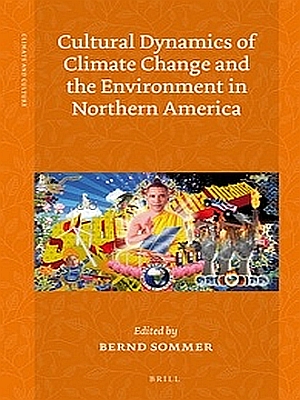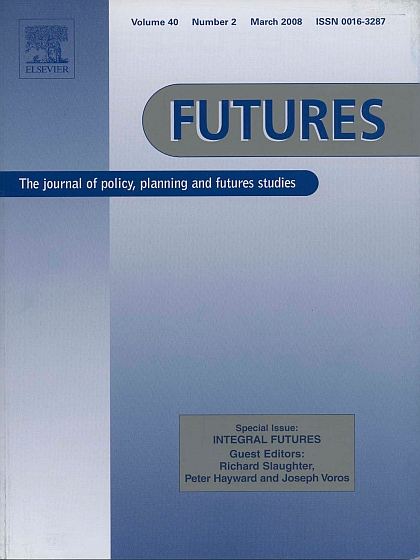Culture and Climate Resilience: Perspectives from Europe
- Publication
- Citation
Martinez, Grit (Ed.) 2021: Culture And Climate Resilience. Perspectives from Europe. London: Palgrave Macmillan.
There is a growing impetus among policy makers and practitioners to support and empower capacities of communities under changing climatic conditions. Despite this there is little systematic understanding of why approaches work at local levels or not and what makes some communities resilient and others less so. Authors addressing this shortcoming by providing illustrative case studies and assessment tools from Europe’s North, East and South helping to bridge the gap between climate change policies, decision-making and the cultural traits of communities in Europe.
Europe is typically thought to be well equipped for coping with the effects of a changing climate - because of its moderate climate, its manifold urban-industrialized regions, it’s typically highly skilled population, its successes in science and technology and its advanced climate change policies. Nevertheless, concrete adjustment measures are often exclusively associated with economic means, specific policies, governmental arrangements, sectoral urban and regional planning and development. Local or regional cultures are rather seldom addressed, as they seem to be less important from our predominantly societal thinking in terms of cost-benefit ratios. Although and of course the participation of local stakeholders plays a role in adaptation and resiliency programmes and projects, values, beliefs, knowledge and behavior of community groups, as well as cultural-historical contexts and traits of a region are far under-acknowledged in climate adaptation and resiliency policy making. This seems to be surprising, since the connections that people have with places and the way these places shape and alter their sensitivity to climate stressors, as well as their capacities to adapt to them, is well known. For decades social science and humanities scholars documented that the social vulnerability of a community at a specific geographical place is characterised by particularities of history, values, beliefs, knowledge, trust and social relationships within and amongst groups, but also within political and legal traditions and institutional and socio-economic structures in which specific climatic change impacts manifests and occurs.
The ability of a social group to cope with the impacts of climatic experiences in the long-term and to adapt to future stresses, perturbations or shocks is known as resiliency. Cultural values influence how decision makers and community members interpret climatic experiences, particularly how they perceive the value of their geographical place, the level of risks they associate with the climatic changes and the beliefs they have about its control and responsibility to adapt and mitigate its effects. Thus, resiliency and culture are inextricably linked.
The volume documents this context and presents empirical experiences from four regions of Europe that have to deal intensively with climate change adaptation: The Irish Midlands, the North Frisian coast, the mountainous region of Slovenia, and the Black Sea coast. The authors shed light on the interplay of cultural influences and imprints, adaptation policies, and the behavior of inhabitants and decision-makers in these regions. A comparative chapter analysis the experiences and practices in the four Case Studies and compares and contrasts them.
The volume, edited by Dr. Grit Martinez of Ecologic Institute, has been published in 2021 by palgrave macmillan in their series "Studies in Climate Resilient Societies."
